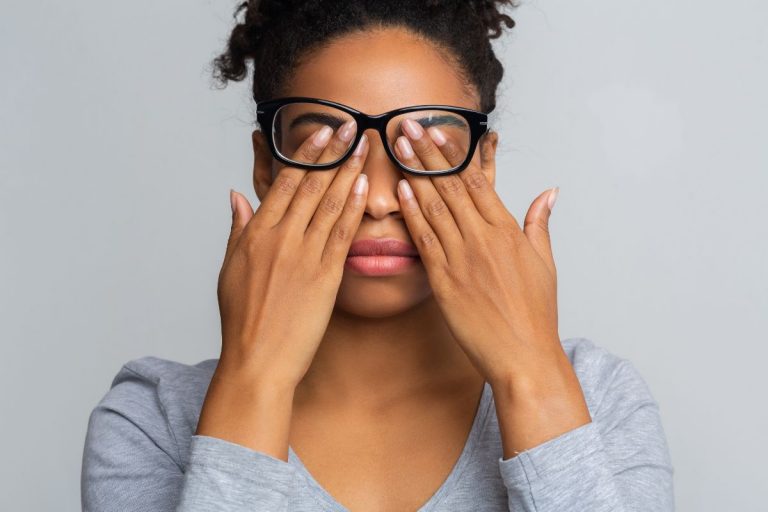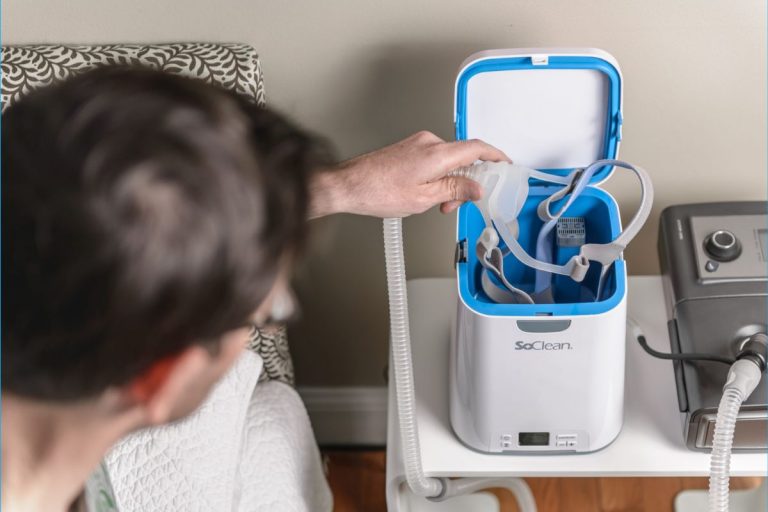Spring is upon us, and with it, we can finally kiss the long winter goodbye and start reaching for less restrictive wear. The Spring and Summer seasons of the year bring back unfettered access to the outside, allowing the enjoyment of the beaches and outdoors and superior relaxation.
However, with this access to more fun comes an increased risk of excessive exposure to the sun, which can pose severe threats to skin health, resulting in conditions like sunburns and photodermatitis.
Hence, for every seasoned outdoorsman, a generous application of minimum SPF 30 sunscreen is a given on every outing, with reapplications after every 2-hour interval. However, even the best of us can have slip-ups from time to time. From forgetting a limb to missing spots that leave patches of skin uncovered, we have all had to deal with the profound nuisance that is a sunburn.
What is Sunburn?
Sunburns are forms of skin damage that occur as a result of extreme exposure to ultraviolet radiation from the sun. Sunburns are characterized by redness of the affected skin, skin peeling as the body gets rid of damaged cells, skin patching, and the particular itchiness and pain that defines a sunburn episode.
In more severe cases, sunburns can also cause extreme pain, blisters, and nausea, and may graduate into skin cancers.
Sunburns can be very painful to live with as they result in the skin being in a constant state of discomfort both during the day and at night. At night, symptoms can often escalate, causing prolonged irritation and sabotaging sleep.
Consider consulting a doctor for treatment if your sunburn case:
- Does not respond to common home remedies like moisturization and hydrocortisone
- Is severe and includes blisters and excessive discoloration
- Results in a skin infection characterized by pus, swelling, or red streaks
- Covers a sizable portion of your body
- Comes accompanied with other sweeping symptoms like headache, high fever, nausea, chills, or dehydration.
Why are Sunburns Worse at Night?
Here are some reasons why sunburns can seem to be a lot more painful at nighttime:
Sunburn Timeline: While sunburns can occur in less than 30 minutes of unprotected exposure to the sun, it takes much longer for the sunburn to develop fully and create maximum discomfort.
This time discrepancy can create a situation where you severely underestimate the extent of the damage until later at night when the pain and itchiness begin to set in fully.
Friction: Another factor that can significantly exacerbate the discomfort you feel from sunburn is that at night, your skin has to undergo constant contact with the sheets and your other beddings. This friction can considerably increase the amount of pain you feel.
The Quiet: At night, away from all the bustle of the day, we have far fewer distractions to take your mind away from the constant itch and pain of a sunburn, and this can create a subjective effect that registers as increased pain.
How to Sleep With a Sunburn
Managing sunburns is significantly more doable during the day than at night. In the daytime, you can slap on some moisturization and then immerse yourself in activities to drown out the itch and pain.
However, at bedtime, you must take extra measures to ensure you can get some restful shuteye despite the sunburn.
Tack on as many of the following tips as you can to significantly increase your nighttime comfort and increase your chances of getting better sleep with a sunburn.
Moisturize with Aloe
With sunburns, the most considerable amount of discomfort often comes from the itchiness that results from the patch of parched skin that never seems to quiet. Hence, both during the day and night, one of the best things you can do to ease sunburnt skin is to moisturize adequately.
One excellent skincare product for this delicate job is aloe vera gel. Aloe often features in topical home remedies for its ability to rejuvenate dry skin and help soothe inflammation. Aloe vera packs a healthy supply of vitamins A and E, two crucial active agents that help with pain and inflammation relief.
However, with sunburns, you must try to keep irritation to the barest minimum to avoid exacerbating symptoms. Hence, our recommendation for the job is a natural 100% aloe vera gel.
A thin layer of aloe gel on affected areas will bring some soothing instant relief and is a surefire way to guarantee better sleep with a sunburn.
Add a cool shower before aloe application or keep the gel bottle in the fridge for a while before applying to enhance the cooling effect on your skin further.
Use Hydrocortisone
For more severe sunburns, you may need a topical treatment with more soothing power than all-natural aloe gel, and hydrocortisone fits the bill perfectly.
Hydrocortisone is the medication form of cortisol, one primary stress hormone in the body that regulates processes like metabolism, the immune response, and how the human body handles stressful situations.
Consequently, applying hydrocortisone can help ease itchy and swollen patches of sunburnt skin. Hydrocortisone is available as topical creams, ointment, lotions, and sprays, and it offers an effective treatment alternative to oral medication for dealing with sunburns.
Applying a thin layer of the medication to affected areas during the day, and before you sleep, can provide some sweet relief and help you sleep better.
Read More: Sleep and Your Immune System: What You Need to Know
Do not use hydrocortisone on your face or underarms, unless under the explicit direction of your doctor
Wash your hands thoroughly and dry them before and after each application
Cooler is Better
A cool body and environment are always great for better sleep as it helps you fall asleep faster, stay asleep longer, and improves sleep quality. Staying chill is also associated with other benefits like anti-aging properties, enhancing moods, reducing stress levels, and a decreased risk of metabolic disease.
However, ensuring you stay cool through the night is especially important when attempting to sleep with a sunburn. Cooler temperatures can help to reduce dryness and, by extension, itchiness in affected skin.
A good start on more refreshing sleep is to set your bedroom temperature a notch lower during night time. Furthermore, if you use a memory foam bed or any other mattress type that traps heat, you can use a gel layer and cooling sheets to make your bed feel cooler against affected skin.
Alternatively, you can foster cooling by taking a cool bath or shower before bed. Another thing you can try is running a cool compress on affected areas to create an intensely soothing effect.
Steer clear of ice. While a cool bath can help ease a sunburn, applying ice or anything too cold can cause skin breaking, creating even more harm.
Remember to moisturize affected areas after every encounter with water to prevent dryness, which can exacerbate itching.
Also Read: 7 Best Bed Cooling Systems: Say Goodbye to Sweating
Optimize Your Fabrics
One surefire way of aggravating the discomfort you feel from sunburn at night is to go to bed in tight, restrictive clothing.
With close-fitting clothes, you face the risk of the burned areas brushing up against the fabric, especially if you move around a lot while asleep. There is also the issue of a lack of sufficient airflow, which can further increase irritation in affected skin.
When dealing with sunburnt skin, make sure to stick to loose-fitting, breathable fabric that provides affected areas with as much ventilation as they need to minimize itching. Furthermore, you should opt for breathable materials like cotton over something like polyester or nylon.
Breathable silk or cotton sheets will complement lightweight clothing for an enhanced cooling effect and less friction against the affected skin during the night.
Hydrate
It is quite common for people with sunburns to complain about dehydration. This water loss occurs because sunburns continuously draw fluid to the skin, which can cause dehydration if you do not replace the water.
To help guarantee better sleep, ensure that you are drinking enough water during the day. Dehydration can cause an increased dryness of affected areas and result in excessive itching, which is a recipe for troubled sleep.
Use Pain Medication
Another way to make sleeping with a sunburn more manageable is to take pain relief and anti-inflammatory medication like ibuprofen or aspirin.
These drugs can significantly help to relieve pain, redness, and swelling in affected areas, making it easier for you to fall asleep and stay asleep through the night.
Other Things You Need to Know
Does Sleep Help with a Sunburn?
Yes. Sleep is nature’s greatest healer, and getting a good night’s rest can significantly alleviate sunburn symptoms come morning.
How long does it take for sunburns to stop hurting?
Pain from sunburn will typically cease or reduce drastically within 48 hours. However, without medication, sunburn will cause the most pain at around the 24-hour mark.
Is a bath good for sunburn?
Yes, a cool shower or bath can help to ease symptoms and make sleep and work more manageable. However, a hot shower will do the opposite, aggravating irritation in affected areas.





